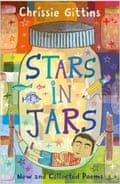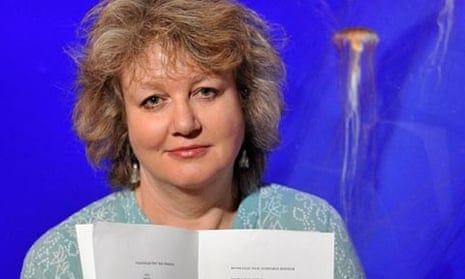Hoorah for the just-out CLPE poetry award shortlist! What treasures! In fact it’s the only award for a book of children’s poetry in this country. Lucky for writers of children’s fiction there are at least 10 opportunities for them to submit to prizes which are solely for fiction. But, is poetry eligible for the Carnegie Medal, the Costa Book Awards, and the National Book Awards? Yes it is! Have you ever seen poetry shortlisted for these awards?
The last time a poetry collection was shortlisted in the children’s section of Costa prize was in 1999 when it was still called the Whitbread Book Awards. This year, out of 91 nominations for the Carnegie prize, only one was for a poetry collection, and that book didn’t make the longlist. (Any professional librarian can nominate a book and it is added to the nominations.)
Certainly children’s poetry doesn’t win these prizes, even on the very rare occasion it is shortlisted. Why is that?
If you read newspaper summer and Christmas book round-ups, or lists of top 10/50/100 book recommendations, they hardly ever include poetry. If you go into bookshops and libraries, do you see signs for children’s poetry? Not many? Is it perhaps because in many bookshops poetry is likely to be found under signs which say “Fairy Tales and Gifts”, “Jokes”, “Rhymes and Giggles” and “Hobbies”? Do you see much stock of children’s poetry? No? Why is that?
Booksellers say to me that there aren’t many poetry books being published; book consultants and journalists tell me that they aren’t told about new children’s poetry books when they are published. It seems that the chain between children’s poetry and its audience has many broken links. Some of the broken links are caused by fear.
Children’s poets visit schools and we know that children love poetry. They respond enthusiastically when it’s read to them, they love the wordplay, rhythms and rhymes, and they write their own fantastic poems in workshops.
A poet who visits schools can expect their highest sales from children who buy their own signed and dedicated copies. So in schools, the chain isn’t broken between poetry and its audience.
But where do children go to look for poetry when the poet has left the premises? Even if a school library is well-stocked with poetry, is it easy to find? Unbelievably, and unfortunately, the Dewey Decimal System (the system librarians use to order books) classifies poetry as non-fiction. How a literary form which depends on the imagination can be classified as non-fiction I’ll never know, but I do know one ingenious school librarian who ignores this and catalogues poetry alongside fiction. That way she achieves many more poetry borrowings.
Children’s poets are usually thin on the ground at book festivals, but at this year’s Manchester Children’s Book Festival the final weekend – 4 and 5 July 2015 – has been earmarked as Children’s Poetry Weekend. It figures that our poet laureate, Dame Carol Ann Duffy, is the director of the festival, and that she writes for both children and adults.
Manchester City Library and Waterstones Deansgate will be taken over for two full days of readings and activities. Children and adults are being asked to adopt, share and create poetry for children, and to honour the poems that first got them interested in poetry. It’s a wonderful initiative, and one that schools, bookshops and workplaces nationwide can become involved in, here’s how.
So what would I like to see? Confidence in children’s poetry publishing with more books being published and budgets for imaginative promotion; poetry visible in bookshops – on tables, with good signage, and staff reviews; poetry well-signed in school and public libraries with frequently rejuvenated stock; more reviews in newspapers, online and in magazines, including adult poetry magazines – it can only make sense for the adult poetry world to help cultivate the next generations of poetry readers. I’d like to see the CLPE Poetry Award celebrated nationwide with displays in schools, bookshops and libraries; and for parents and children to relax and enjoy poetry together and include it in bedtime reads.

One of the most gratifying messages I’ve ever received was from a mother whose son was in a school I visited in Shetland. She said that after my visit she’d spent a lovely evening with him and his older sister reading my poems, and she thanked me for introducing them to poetry. That’s all it takes!
Chrissie Gittins’ new and collected children’s poems Stars in Jars is published by Bloomsbury. Her previous collections are Now You See Me, Now You…, I Don’t Want an Avocado for an Uncle, and The Humpback’s Wail.
Join in: Do you find it difficult to find new poetry to read? Do you want more? Which are your favourite poets and poems? Tell us on email childrens.books@theguardian.com or on Twitter @GdnChildrensBks and we’ll add to this blog.
Your recommendations
@GdnChildrensBks My favourite poet as a teenager was Sylvia Plath. I still love and regularly re-read Ariel.
— Louise O' Neill (@oneilllo) April 28, 2015
@MichaelRosenYes gets my vote!!! #poetry https://t.co/1ClzzEy78Q
— Peter Allerton (@peterallertonwr) April 28, 2015
Kate, on email
Too many to list but have just been reading Stephen Mitchell, The Wishing Bone and Other Poems – just delightful.
@GdnChildrensBks @Armandii @clpe1 @PoetrySociety One of my favourites is @Lizpoet (Liz Brownlee). Highly recommend! pic.twitter.com/TTIDkbDQgI
— Mimi Thebo (@MimiThebo) April 28, 2015
Sue, on email
Benjamin Zephaniah - “Luv Song … I am in love with a hedgehog”
Michael Rosen - “We’re Going on a Bear Hunt”
@GdnChildrensBks @Armandii @clpe1 @PoetrySociety My favourite poem is Spike Milligan's 'On the Ning Nang Nong'. It has been since I was 7.
— Elli Woollard (@Elli_fant) April 28, 2015
@GdnChildrensBks My parents were both children's poets, & I grew up surrounded by Spike Milligan, Roger McGough, Brian Patten, Ted Hughes.
— Rosalind Jana (@RosalindJana) April 28, 2015
@GdnChildrensBks @Armandii @clpe1 @poetrysociety Sarah Crossan! Stunning writer. Her words are crisp and clear and so, so precisely lovely.
— LH 'Daisy' Johnson (@chaletfan) April 28, 2015
@GdnChildrensBks @Armandii @clpe1 @PoetrySociety My favourite poem is Edward Lear's The Owl and The Pussycat, I learnt it at primary school.
— Catherine Friess (@cjfriess) April 28, 2015
@GdnChildrensBks @Armandii @clpe1 @PoetrySociety Too hard so many! Me-Forgiven by A A Milne Son1-Jabberwocky son2-Dad's in Bed Michael Rosen
— Andy Shepherd (@andyjshepherd) April 28, 2015
@GdnChildrensBks @clpe1 @PoetrySociety Polkabats & Octopus Slacks by @CalefBrown is a favorite--all his poetry books for kids are great!
— erika meitner (@rikam99) April 28, 2015
The Sea's Hands by @george_szirtes is perfect @GdnChildrensBks
— Dom! Conlon (@headfirst_dom) April 28, 2015
